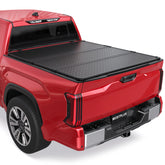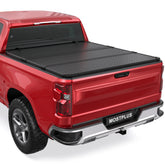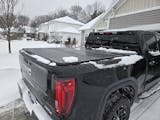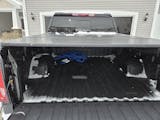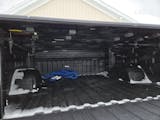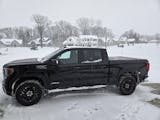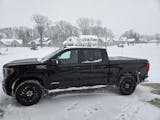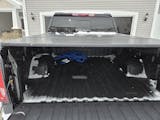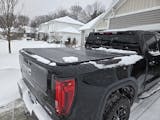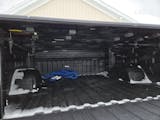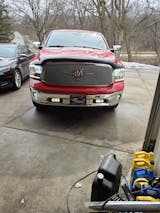How Long Do Coilovers Last ?
Coilovers provide a dynamic balance between comfort, performance, and handling. In this comprehensive exploration, we will dissect the various factors influencing the longevity of coilovers, their expected lifespan, signs of wear, and maintenance practices that can prolong their efficiency.
Understanding Coilovers
Before delving into the lifespan of coilovers, it's essential to grasp their fundamental role in a vehicle's suspension system. A coilover combines a shock absorber and a coil spring into a single unit, allowing for independent adjustment of both components. This integrated design grants drivers the flexibility to fine-tune their vehicle's ride height, handling characteristics, and overall performance.
Key Components of Coilovers
- Shock Absorber: Dampens vibrations and impacts, ensuring a smoother ride by controlling the movement of the suspension.
- Coil Spring: Supports the vehicle's weight and provides resistance against road imperfections, contributing to the suspension's overall responsiveness.
- Adjustable Perches: Enable changes to the ride height, allowing drivers to customize the vehicle's stance and handling.
- Bump and Rebound Adjustments: Permit tuning of the shock absorber's compression (bump) and extension (rebound) rates for optimal performance.

Factors Influencing Coilover Lifespan
Several factors contribute to the longevity of coilovers.
1. Quality of Materials
The construction materials used in coilovers play a significant role in determining their lifespan. High-quality components, such as stainless steel, aluminum, and durable alloys, are more resistant to corrosion and wear over time compared to inferior materials.
2. Driving Conditions
Aggressive driving, frequent off-road excursions, and exposure to harsh environmental elements can accelerate wear and diminish their effectiveness.
3. Maintenance Practices
Regular maintenance is paramount for coilovers. Proper care includes routine inspections, lubrication of adjustable components, and addressing any signs of wear promptly.
4. Adjustment Frequency
Coilovers offer the advantage of adjustability, allowing drivers to fine-tune their suspension settings. However, frequent adjustments, especially aggressive changes in ride height or damping settings, can contribute to premature wear.
Expected Lifespan of Coilovers
While the lifespan of coilovers can vary based on the aforementioned factors, a general estimate can be provided. On average, well-maintained and quality coilovers can last anywhere from 50,000 to 100,000 miles or more. However, this is a broad range, and individual experiences may vary based on driving habits, environmental conditions, and the specific design and materials used in the coilovers.

Signs of Wear and When to Replace Coilovers
Leaking Fluid
If there is visible fluid leaking from the shock absorber, it indicates a potential failure. This can compromise the damping capabilities of the coilover, leading to reduced performance.
Uneven Tire Wear
Uneven tire wear may suggest imbalances in the suspension system, including worn-out coilovers. Regularly inspecting tires for unusual wear patterns can be an early indicator of potential issues.
Excessive Bouncing or Nose-Diving
If the vehicle exhibits excessive bouncing after encountering bumps or nose-dives during braking, it may signal worn-out or damaged coilovers. This affects the overall stability and handling of the vehicle.
Knocking or Clunking Noises
Unusual noises, such as knocking or clunking sounds when driving over bumps or rough surfaces, may indicate loose or damaged components within the coilovers.
Loss of Adjustability
If the coilovers lose their ability to hold adjustments or if adjustments have become challenging, it may signify internal wear and the need for replacement.

Factors that May Shorten Coilover Lifespan
Lack of Maintenance
Neglecting routine inspections, lubrication, and necessary adjustments can significantly reduce the lifespan of coilovers.
Poor Installation
Improper installation can lead to premature wear and compromised performance.
Excessive Load
Carrying loads beyond the recommended weight capacity can strain the coilovers, leading to accelerated wear.
Environmental Exposure
Vehicles exposed to harsh environmental conditions, such as extreme temperatures, road salt, or corrosive substances, may experience a shorter coilover lifespan.
Extending the Lifespan of Coilovers: Maintenance Tips
To maximize the lifespan of coilovers and ensure optimal performance, adhere to these maintenance practices:
1. Regular Inspections
Periodically inspect the coilovers for leaks, visible damage, and signs of wear. Address any issues promptly to prevent further damage.
2. Lubrication
Lubricate adjustable components, such as perches and damping adjustment knobs, according to the manufacturer's recommendations. This prevents friction-related wear.
3. Avoid Aggressive Driving
While coilovers are designed to handle spirited driving, excessive abuse, aggressive off-roading, or continuous hard impacts can accelerate wear. Drive responsibly to prolong their lifespan.
4. Proper Adjustment
If your coilovers are adjustable, make changes judiciously. Avoid frequent and extreme adjustments, as this can contribute to premature wear.
5. Protect Against Environmental Factors
Whenever possible, park your vehicle in a sheltered area to protect the coilovers from extreme weather conditions, road salt, and corrosive substances.
Conclusion
Coilovers, integral to a vehicle's suspension system, offer a unique combination of performance and adjustability. Understanding the factors influencing their lifespan, recognizing signs of wear, and adopting proactive maintenance practices can significantly extend their longevity. Whether you're a seasoned automotive enthusiast or a daily commuter, prioritizing the health of your coilovers contributes to a smoother ride, enhanced handling, and an overall enjoyable driving experience.
Featured Products
- $479.99
$499.99- $479.99
- Unit price
- / per
- $549.99
$559.99- $549.99
- Unit price
- / per
- $489.99
- $489.99
- Unit price
- / per
- $469.99
$489.67- $469.99
- Unit price
- / per
